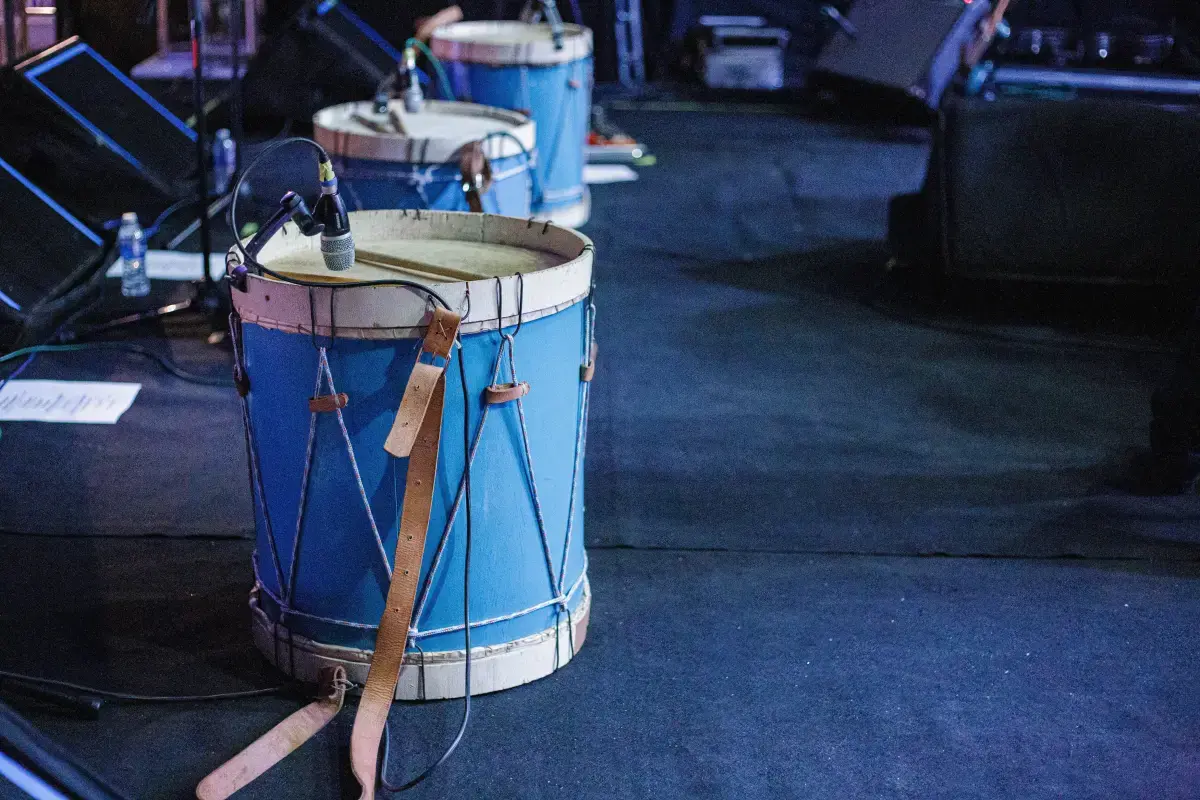
Musicologist Job Description
What is a Musicologist Professional?
A musicologist is somebody who studies music. They may specialize in a certain era, genre, or style of music, or in Musicology (the art and science of making and studying music). There are many different areas that a musicologist may research, including the history of music, the theory and analysis of musical works, the sociology of music, and the psychology of music. Musicologists often work in academia, either as teachers or researchers. They may also work for museums, archives, or other cultural institutions. Some musicologists freelance as consultants or writers. The job of a musicologist can be divided into three main categories: research, teaching, and administration. Research includes activities such as writing articles and books, giving lectures and presentations, and conducting fieldwork.

What does a Musicologist Expert do?
Teaching typically takes place in universities and colleges, although some musicologists also teach in secondary schools or give private lessons. Administration involves working with organisations to develop programmes and policies related to music education and historical performance practice. Musicologists use a range of methods to study music. These include textual analysis (examining musical scores), iconographical analysis (examining visual representations of musical activity), ethnographic methods (observing musical activity in its naturalistic setting), statistical methods (analysing huge data sets),and interpretative methods (drawing on hermeneutic principles to understand musical meaning). One of the challenges faced by musicologists is that our understanding of Musicology is constantly evolving. As new discoveries are made and new perspectives emerge, we need to be open-minded about how we define and study music

What are the Skills of a Musicologist?
A musicologist needs a deep understanding of music theory, history, and composition. They must be able to sight-read sheet music and understand complex musical notation. Musicologists need to have excellent listening skills and be able to identify different instruments, genres, and styles of music. They should also be familiar with the work of a variety of composers and performers.

What makes an Expert Musicologist?
Musicologists should have a strong background in research methods and analytic skills. They should be able to write clearly and concisely about their findings. Musicologists need to be proficient in using technology for research purposes, such as online databases and software programs. Finally, musicologists need good interpersonal skills in order to collaborate with other scholars and communicate with students effectively.

What level of Experience & Qualifications are required to be a Musicologist?
Industry Experience: 1. At least five years of professional experience in musicology or a related field. 2. Demonstrated knowledge and understanding of musical styles, genres, and concepts. 3. Ability to critically analyze and interpret musical materials from multiple sources (e.g., recordings, scores). 4. Knowledgeable about current research trends in the discipline of musicology and their application to historical studies and performance practice. 5. Experienced with conducting interviews related to specific topics in the study of music history as well as mentoring students on research projects in this area if applicable Training: 1. Extensive training in qualitative methods for studying music such as stylistic analysis, discourse analysis, hermeneutics/semiotics/narratology etc., according to individual specialization areas within the field of Musicology 2 .Ability to use software programs relating to digital audio processing such as Sibelius or Finale; familiarity with programming languages like C++ is also beneficial Qualifications: 1) A Master’s degree or higher qualification in Musicology or a relevant field (such as Ethnomusicology). 2) Membership with relevant professional bodies such as International Council for Traditional Music (ICTM), Society for Ethnomusicology (SEM) etc.. 3) Professional certification through organizations like College Music Society (CMS), American Association of Composers & Publishers (ASCAP), National Association for Music Education(NAfME), etc... 4 )Knowledgeable about copyright laws pertaining to published works by composers/artists that are used by researchers Education: 1) Bachelors Degree from an accredited college/university either directly majoring in Musicology / Ethnomusicology OR specializing minors fields including but not limited to composition theory , world musics , ethno-musicological literature review , popular culture studies , media arts production 2 ) Advanced Graduate degrees such as Doctorates & Postdoctoral qualifications highly desirable

What is the Salary of a Musicologist?
The salary expectations of a musicologist can vary greatly depending on their experience and qualifications. For junior positions, salaries typically start at around $40,000 per year and may increase to around $60,000 with more experience. Senior-level musicologists can earn significantly higher salaries, ranging from $70,000 to $100,000 or more annually. Those in highly specialized roles within academic institutions may command even higher salaries due to the rare skillset they possess. Additionally, those who work as independent consultants for organizations such as record labels are likely to be paid well above the average for musicology jobs. Finally, geography plays an important role when it comes to salary expectations - cities with larger concentrations of musicians and other industry professionals tend to offer higher salaries than smaller towns or rural areas.

What are the Working Conditions for a Musicologist?
Working conditions for a musicologist can vary depending on the type of position held. Generally, however, most musicologists work in academic settings such as colleges and universities or research centers. This may involve teaching classes related to their field, conducting research projects, and writing papers or books about musical topics. Musicologists also often give lectures at conferences and symposiums and participate in public outreach programs to promote knowledge of musical history. The hours that a musicologist works will depend on the job they are doing; some positions may require more time than others. Most full-time jobs involve 40 hours per week but overtime is sometimes necessary when preparing for presentations or researching new topics. Musicologists typically have flexible schedules which allow them to attend rehearsals or performances when needed. In addition to office space provided by their employers, many musicologists use their own computers and other equipment such as sound systems in order to analyze audio recordings and produce written reports on musical topics. They usually work autonomously without direct supervision but must be able to communicate effectively with colleagues in order to collaborate successfully on various projects. Musicologists must possess an advanced understanding of both theory and practice regarding all aspects of the study of music including composition, performance, analysis, interpretation, criticism etc., so it is important that they stay up-to-date with industry trends through continued education opportunities such as seminars or workshops offered by professional organizations like NARM (National Association for Recording Arts & Sciences).

What are the roles and responsibilities of a Musicologist?
Analyzing and interpreting music
Conducting research on musical topics
Writing about music and musical history
Studying the relationships between music and other disciplines
Teaching music history, theory, and analysis
Serving as an expert witness in legal cases involving music
cataloging and preserving musical manuscripts and other documents
Editing and publishing musicological journals and books
Directing graduate student research
Fundraising for musicological projects
Managing museums or archives devoted to musical materials
Organizing concerts, public lectures, or symposia
Preserving traditional forms of music through fieldwork or ethnomusicology
Studying the origins of specific pieces of music
Analyzing how music has changed over time
Seeking out new talent and supporting the development of young musicians
Conducting research on various aspects of music, such as its history, theory, and criticism
Teaching students about music at the collegiate level
Working as a curator or librarian at a music library or archive
Holding a leadership position in a professional organization devoted to the study of music

Where can I find Musicologist jobs?
- Create a profile on gigexchange and promote your Musicologist skills to advertise you are Open to New Work Opportunities
- Ensure your Resume (or CV), or online work profile is up to date and represents your skills and experience. Ensure your reputation reflects your ability & attitude.
- Apply for Musicologist Jobs advertised on gigexchange.
- Practise Musicologist interview techniques to ensure you represent your personality and ability succinctly and confidently.
- Accept the job offer if the salary meets your expectations and the employer mission and purpose reflects your core values.
Jobs
What are the best job boards for Music Scholar jobs?

How can I hire Musicologist staff online for my business?
The best job board for recruiting Musicologist experts is gigexchange.com. Advertise full-time, part-time or contract jobs to find, hire & recruit trusted, experienced and talented Musicologist candidates near you.

Are Musicologist roles in demand in 2026?
Musicologist experts are still in high demand in 2026. If you are an experienced Musicologist or looking to train and become one. The job market is looking strong for Musicologist jobs near me.